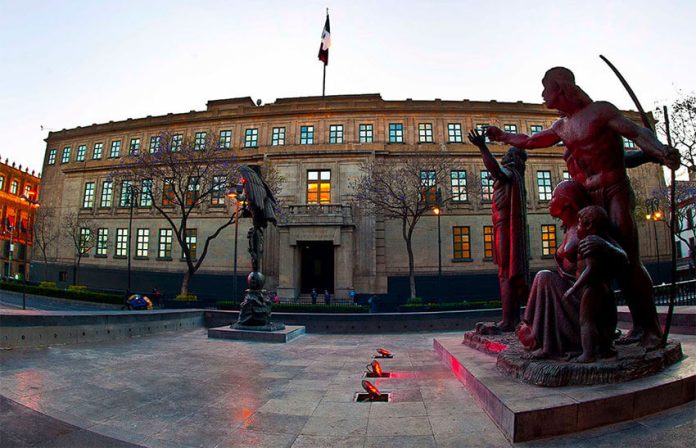The Supreme Court (SCJN) has partially suspended a presidential decree that sought to protect government infrastructure projects from scrutiny by classifying them as matters of national security.
Published in late November, the decree drew criticism from several analysts, opposition politicians and others, who broadly agreed that it was indicative of an increasingly authoritarian government and would be detrimental to transparency.
The National Institute of Transparency, Access to Information and Protection of Personal Data (INAI) filed a legal challenge against the decree and was successful in having some of its provisions suspended.
The SCJN ruled Tuesday that the federal government cannot reserve information about its infrastructure projects on the grounds they are pertinent to national security. As a result, government information about projects such as the Maya Train, the Dos Bocas refinery and the Isthmus of Tehuantepec trade corridor will be subject to public scrutiny.
INAI argued that the decree violated people’s right to access information and that the government had exceeded its powers by publishing it. The institute stressed that it was not its intention to stop government infrastructure projects, acknowledging that their construction is of great national importance.

The government could file an appeal against the suspension, which took effect immediately, but the court would likely take several months to deliver a ruling. However, President López Obrador indicated Wednesday that the government was happy to comply with the court’s decision.
The SCJN rejected applications by INAI for other parts of the decree to be suspended. The institute sought the suspension of provisions that allow the government to award contracts for projects without a tendering process and which instruct government agencies to grant permits to projects deemed to be of public interest and national security in a maximum period of five working days.
Such expedited temporary approvals will come at the expense of environmental, feasibility and accountability review processes.
Responding to the Supreme Court’s ruling at his Wednesday press conference, López Obrador rejected claims that the government had sought to conceal information about its projects through the publication of the decree.
“[Our] adversaries said that what we wanted was to hide information and that’s not true, it’s a lie. Now the court says ‘go ahead with the decree,’ or [at least] it’s not stopping it. But we have to present information, which is our responsibility. We understand that transparency is a golden rule,” he said.
The president previously said that his decree was aimed at stopping bureaucracy from holding up projects. His administration is pursuing an ambitious infrastructure agenda, and has faced legal challenges against some of its projects, including the Maya Train and the new Mexico City airport.
Classifying such projects as pertinent to national security will help the government avoid having its projects halted by injunctions and other legal instruments.
With reports from Milenio, Reforma and El Universal
